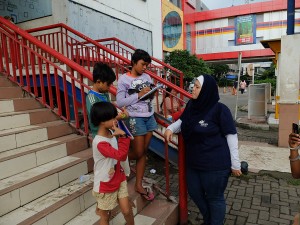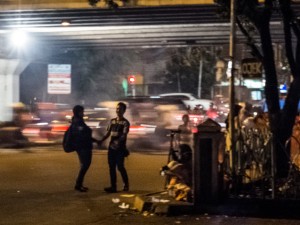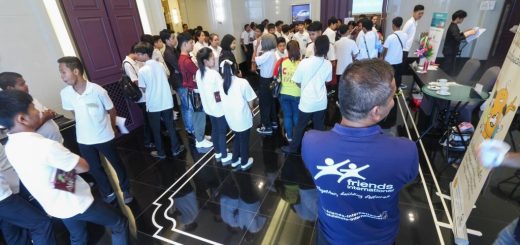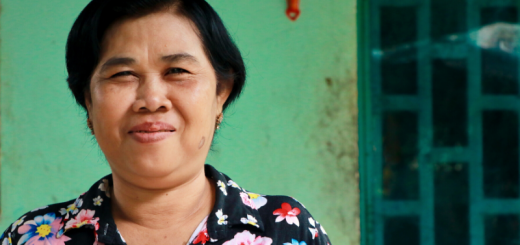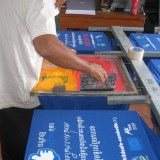Indonesia Blog #2 –‘These streets are made for walkin’…’
Our second post in the series on the development of Teman Baik, sees the team hitting the streets of Jakarta, learning about the city, its moods and the habits of the children and families within it. In a place where it can sometimes take hours to move a few blocks, we learn about the other hurdles facing the team. Follow us as Country Program Director Ghislain Morard leads us through the giant, teeming metropolis…
Our work in Jakarta started at the end of February and, as always at Friends, the first thing we’ve built is the outreach program. Every day our social workers make contact with children, youth and families to understand their situation and needs. These are vital in helping build the relationships that form the foundation of everything else we do.
Jakarta is quite a different environment from the streets of Phnom Penh. Walking the streets in our Friends t-shirts is enough to have groups of children and youth gather – many of whom already know Friends and what we have to offer! In this giant city we have begun with a very small team and little information on where to start.
The first challenge was to find suitable places to meet and talk with children. In Jakarta it is not unusual to see begging/working children at intersections, but this does not mean they are easy to engage with! Often they’re too busy to stop for conversation; many are very mobile, chasing good work locations whilst running away from places where they know they may be arrested by authorities. This has made it difficult for us to establish regular schedules and build the trust and relationships needed to begin meaningful work.
As we begin to better understand the city and locations where marginalized children, youth and families live or work, the next challenge was to engage in meaningful conversations and collect information needed to design the program. While people have been generally curious, it’s simply not enough. Some were quickly disappointed as they were expecting us to provide direct financial support. Others were suspicious as they had previously experienced empty promises by ill-intentioned people or corrupt organizations. Many were genuinely surprised and happy to chat as they had been told that nobody really cares about them, or would ever take the time to listen.
We have quickly found that our best avenue to meet street working/living children and families was in the evenings; this has meant re-arranging our schedule, ensuring social workers are on the streets until late. Add to this the hectic Jakarta traffic where travel from one location to another can sometimes takes several hours – it certainly makes for long and tiring work days! Fortunately this approach has turned out to be effective and we’ve had many, rich and fruitful interactions during these first months of operation.
In a next post we’ll give you an overview of what we’ve learnt and how this is going to shape the future of the program. Stay tuned!


